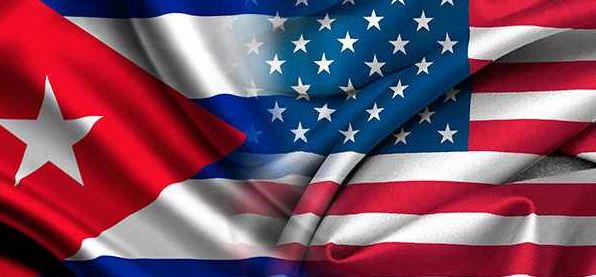
Editorial: Dialogue without pressures
HAVANA — The relations between states are a formula of coexistence that tends to create, promote and guarantee peace. It presupposes coincidences and differences, as well as the capacity to live with an acceptable balance of them. Can we include these qualities as being in effect in our universal moment?
The drive for global control, homogenization of thought, that promotes and validates the economic power that participates in the reproduction of an economic-political system that excludes the majorities of the world’s inhabitants marks the existing reality.
For a long time now, Cubans have lived the effects not only of this drive (because they have their own very serious problems) but also the many effects generated by the various administrations of the United States of America.
Relations between the American Union and Cuba, reconstructed half-way after 58 years — a half-way journey, yes, but a journey nevertheless — serve as an example of the complex problem in the relations between the states with different systems.
President Raúl Castro Ruz and departing president Barack Obama initiated — each one with his own agenda and interests — efforts that can be summarized as follows: for the island, to defend its option; for the powerful neighbor, to influence that option and the process of change. Those efforts created a movement of zigzag, advances, contention and elegant pressure.
However, everything — to the final objective — was on the table, and the tussle during the dialogue maintained on specific points clearly reflects the requirements and desires of both parties. Still, both opted to dialogue and guarantee the process.
The talks benefited both parties in different areas, such as the recent accord (not the only one) about the hot item known as “dry-feet-wet-feet” that even goes beyond the interests of both governments. An example of this was the strong tension foisted on the Central American region precisely because it was the path to the Mexican border with the United States.
What’s important is to know that in the interstate negotiations neither party places a 100-percent bet. Generally, they negotiate with a maximum and a minimum bet. And in the case of “dry-feet-wet-feet,” the human problem goes back to its point of origin: Cuba, as the source of the emigrants. And the United States, the receptor nation, is responsible for the famous Cuban Adjustment Act.
At this point, what little has been gained in several important areas seems to be in limbo because of the rise to the presidency of Mr. Donald Trump and the composition of his team.
How will the new president and the new administration act regarding Cuba?
At this time, he inherits a package of decisions made by President Obama, about which Obama has informed him. The explanation for those decisions is that the topic of Cuba is undergoing a dialogue. In fact, the conclusions of Obama and his team of analysts, rightly or wrongly, must include appreciations on issues that go beyond the accords that were signed.
To add other ingredients that might be in the minds of Trump associates would result in losing ground that was won.
Will Trump validate Obama’s decisions? Will he accept them with “new” rates of political interest that will be unacceptable to Cuba?
Probably the answer to the two questions — which evidently are linked — will be a Yes that includes a request for concessions. Negotiations between states and governments habitually include concessions. But, will Cuba be asked for something that is not asked from anyone else?
It might be worthwhile for the new U.S. administration to review what happens daily in its own land, such as the developments in its social fabric, a crisis that the electoral process has made evident. It should also analyze with its “strict” yardstick the political systems, behavior and actions practiced by many of its allies in, for example, the convulsed Middle East.
Or it might criticize itself for having initiated endless wars — one of them with flagrant and demonstrated lies — in a quest for geostrategic objectives. Or for creating Failed States whose rich sectors it controls.
The rest, the people, who lack economic importance, are as valuable to Washington as camel droppings in the desert.
In the case of Cuba, a process under construction, there are questions of principle, where the quid-pro-quo formula — which is unavoidable to settle differences — doesn’t apply, even though those questions were and are present in the Havana-Washington talks. There are limits to give-and-take. Would the 13 founding colonies have accepted a quid-pro-quo with Britain that would change the democratic system chosen by the freedom seekers?
The Cuban process of renewal, despite contingencies and domestic contradictions, frustrating slowness, errors in concept and/or implementation, legal limbos, obsolete mentalities, corrupt persons, voracious bureaucrats, will inevitably continue ITS path of reforms through the will, drive and efforts of its people and leaders.
There is space for more changes in all the spheres, independent of Washington, and there are citizens intent on making them by persisting on their rights and aspirations. Cuba does not need godfathers; it does need good and beneficial relations in all fields of endeavor.
We wish that the dialogue between the United States and Cuba may continue until relations are fully normalized. But, if in the depths where policy is really forged, and given Mr. Trump’s relations with some sectors of the Cuban-American far right, the temptation might arise to reverse or freeze the achievements of both parties in the latest negotiations, and if economic pressures are enforced with bolder and more dangerous steps, the U.S. should know that Cuba will go ahead with its changes — even speed them up and broaden them on its own.
As Maj. Ignacio Agramonte replied in the late 1800s to pacifists who asked him what weapons did he have to fight the Spaniards, Cuba can rely on the “shame” of its people. And shame in that case meant pride.

